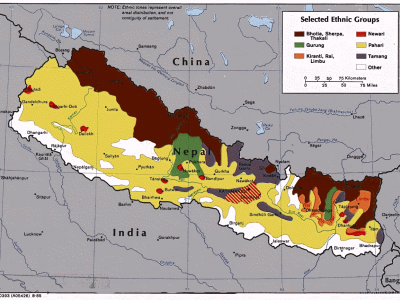Three Nepali journalists were arrested last week on charges of publishing indecent and defaming content online. They were taken into police custody after officials at Padma Kanya Multiple College, a public university, lodged a complaint over an article on news site nepaliheadlines.com that commented on the college students’ sex lives. Groundviews reported that the news item described female students at the university using eggplants as sex toys.
The court remanded the arrested journalists — Sushil Panta, editor of nepaliheadlines.com, and reporters Puskar Bhattarai and Santosh Bhattarai — placing them in seven-day custody of Kathmandu Metropolitan Police. They were reportedly released on June 24.
Police stated that the journalists may be prosecuted under both the Electronic Transaction Act (2008) and the country's cyber crime laws. Shreedeep Rayamajhi reports:
According to the Nepali Electronic Transaction Act 2008, any person who commits cyber crime is liable to punishment with [a] fine of up to Rs 100,00 or [a] maximum jail term of five years or both.
The blogger added:
On Sunday, Press Council Nepal (PCN), Federation of Nepali Journalists (FNJ) and Dllibazaar Kanya Campus [settled] upon a five-point agreement to release the online journalists. The agreement highlights to take immediate action against the accused after an investigation and the campus to withdraw the charges against them.
The World Association of Press Councils (WAPC) urged immediate release of the arrested journalists, arguing that the arrests constituted a violation of the law and stating that Nepali media laws provide remedies other than arrest for situations of this nature. The Federation of Nepali Journalists (FNJ) also condemned the arrest of journalists.
The Nepali Press Council, the government entity charged with enforcing the nation's media policies, stated that if the journalists had breached the Council’s code of conduct, the Council — not the police — should take have action against the accused. It said in a press statement:
It is unjust to arrest journalist[s] over the issue of a news story…when the council is entrusted with the task of monitoring the print and electronic media.
In a related development, the Council is considering including digital news sites under its remand. The Council currently oversees traditional (non-digital) media organizations only.




